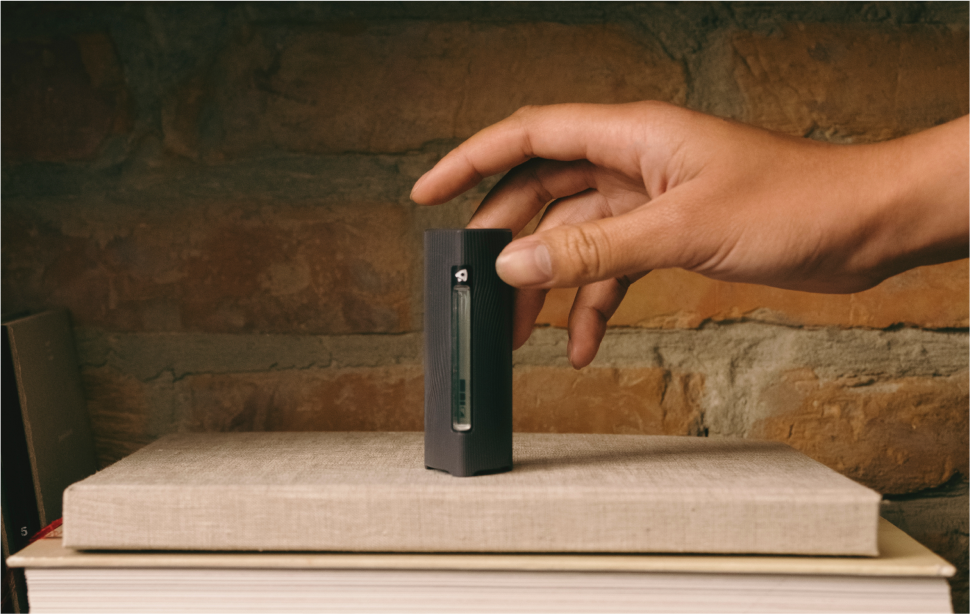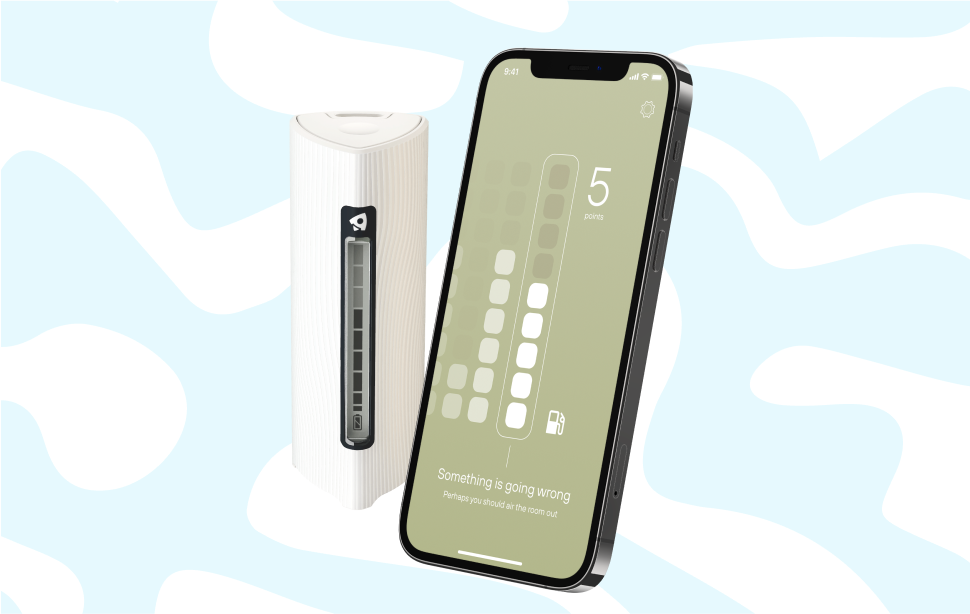
How stale air steals your money
Share
Have you ever got stuck on a task for no apparent reason? Here’s a clue: your brain lacks fuel for work. According to multiple scientific studies, people’s cognitive performance depends directly on what air they breathe. The more CO2 is in the air, the less productive we are in our thinking process.

At CO2 exposure of 1000 parts per million (ppm) compared to 600 ppm, our brain performance decreases by 35%. Thus, more than one-third of the max working productivity is lost due to improper air composition.

Who should be the most concerned are business owners and managers: businesses struggle for revenues, and that struggle might be lost just because of bad ventilation in office spaces.
What science knows
How the air we breathe affects our brain
Researchers from the world’s top universities held experiments to reveal air composition’s effect on human cognitive performance. In those experiments, participants in several groups were exposed to varying CO2 concentrations controlled by automatic injections. Using the specialized software, participants passed the 2.5 hours test of performance in nine main cognitive domains. Competencies tested varied from simple ones like basic decision-making and the ability to focus on a particular task — to more complex ones such as the breadth of approach, planning capacity, and strategy.
Learn more about scientific research of CO2 effects on human brain
At higher CO2 concentrations, experiment participants showed significantly worse results at seven of nine measured indicators. Three cognitive domains were impaired down to the dysfunctional level: Crisis Response, Information Usage, and Strategy. Remember how often you need all these competencies in your work?
It would seem insignificant at first glance. Unless you’d count the money.
What about money
How much you might lose because of poor air composition
To dive deeper, let’s make some calculations.
Let’s say you own a software development company with a bunch of highly skilled engineers working all day long in a perfectly equipped but poorly ventilated office. Some simple calculations can strike you with horror: you can lose about $40 000 per engineer annually.
The average salary of a software engineer in the US is $57 per hour, therefore $111 537 yearly (taking 261 working days as a base for estimation).
Suppose the CO2 concentration stays around 1000 ppm. In that case, the average decision-making performance decreases by 35%, so your business might suffer losses up to $39 354 per engineer annually — because of poor air composition impairing your employees’ cognitive performance.

What to do
How Altos helps
Since CO2 is an invisible and odorless gas, its concentration changes without being noticed — and it could happen really fast. When it comes to the money your business struggles for, Altos is a reliable assistant. With Altos, both you and your employees are always aware of whether the air composition in your environment, be it corporate or home office space, fits for productive work and, thus, for gaining revenues.
The flow is as simple as brushing your teeth: just carry Altos next to yourself and install the companion app. When the CO2 concentration rises, Altos will send a push notification gently prompting to adjust the air composition for productive work.
Remember the $40 000 annual losses per one software engineer? Even at the first approximation of Altos being able to cover one case of the ten possible, the profit is pretty clear: it saves 10% potential losses, which is $3 953 annually. In this case, at the cost of $239, the Altos’ payback period is 16 days. Seems to be a reasonable investment, doesn’t it?

What else?
A few tips to keep your employees healthy
There are multiple ways employers can boost their workers’ productivity, and here are some of them:
Maintain proper environment
As people stay at work for many hours a day, a healthy indoor environment is crucial for their wellbeing and, as we learned, productivity. So, corporate spaces should be well-ventilated and not crowded, have enough light, and provide enough space for each occupant. Provide your employees with fresh air, and you’ll see exceptional results in their work!
Encourage wellbeing practices
Just a 5-minute break when you stand up, drink a glass of water, and have a chat with a colleague will help your mental health a bit. Imagine how the in-office morning yoga practice can boost your energy for the upcoming workday! As an employer, you cannot enforce but surely can encourage employees to do some wellbeing practices. Set up a schedule for wellness breaks, hold a corporate running competition, or invite the yoga master to your office — there are plenty of options, choose yours.

Provide positive defaults
People tend to make unhealthy choices when they have lots of options — even when we clearly see the long-term consequences, the short-term desires might prevail. That’s fair, for example, for nutrition: if you choose a meal at the moment you’re starving, you probably might prefer some unhealthy but tasty one. But if your fridge is full of healthy food, you won’t need to make a choice, and that’s the positive default you need.
Therefore, it’s a good idea to take care your employees have such positive defaults — the ones that enhance their wellness. For example, install software to their computers to remind them of timely breaks, supply your office with healthy meals, or let them control what air they breathe — with Altos!
